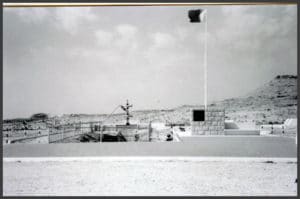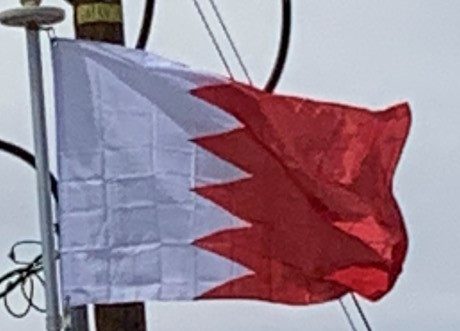Before the development of petroleum, the island was largely devoted to pearl fisheries and, as late as the 19th century, was considered to be the finest in the world. Prior to the First World War, there were about 400 vessels hunting pearls and an annual export of more than £30,000.
In 1911, a group of Bahraini merchants demanded restrictions on the British influence in the country. The group’s leaders were subsequently arrested and exiled to India. In 1923, the British introduced administrative reforms and replaced Sheikh Issa bin Ali with his son. Some clerical opponents and families such as al Dossari left or were exiled to Saudi Arabia and Iran. Three years later the British placed the country under the de facto rule of Charles Belgrave who operated as an adviser to the ruler until 1957. Belgrave brought a number of reforms such as establishment of the country’s first modern school in 1919, the Persian Gulf’s first girls’ school in 1928 and the abolition of slavery in 1937. At the same time, the pearl diving industry developed at a rapid pace.
In 1927, Rezā Shāh, then Shah of Iran, demanded sovereignty over Bahrain in a letter to the League of Nations, a move that prompted Belgrave to undertake harsh measures including encouraging conflicts between Shia and Sunni Muslims in order to bring down the uprisings and limit the Iranian influence. Belgrave even went further by suggesting to rename the Persian Gulf to the “Arabian Gulf”; however, the proposal was refused by the British government. Britain’s interest in Bahrain’s development was motivated by concerns over Saudi and Iranian ambitions in the region.
The Bahrain Petroleum Company (Bapco), a subsidiary of the Standard Oil Company of California (Socal), discovered oil in 1931 and production began the following year. This was to bring rapid modernisation to Bahrain. Relations with the United Kingdom became closer, as evidenced by the British Royal Navy moving its entire Middle Eastern command from Bushehr in Iran to Bahrain in 1935.

In the early 1930s, Bahrain Airport was developed. Later in the same decade the Bahrain Maritime Airport was established, for flying-boats and seaplanes.
Bahrain participated in the Second World War on the Allied side, joining on 10 September 1939.
After World War II, increasing anti-British sentiment spread throughout the Arab World and led to riots in Bahrain. The riots focused on the Jewish community. In 1948, following rising hostilities and looting, most members of Bahrain’s Jewish community abandoned their properties and evacuated to Bombay, later settling in Israel (Pardes Hanna-Karkur) and the United Kingdom. As of 2008, 37 Jews remained in the country. In the 1950s, the National Union Committee, formed by reformists following sectarian clashes, demanded an elected popular assembly, removal of Belgrave and carried out a number of protests and general strikes. In 1965 a month-long uprising broke out after hundreds of workers at the Bahrain Petroleum Company were laid off.
Independence:
On 15 August 1971, though the Shah of Iran was claiming historical sovereignty over Bahrain, he accepted a referendum held by the United Nations and eventually Bahrain declared independence and signed a new treaty of friendship with the United Kingdom. Bahrain joined the United Nations and the Arab League later in the year. The oil boom of the 1970s benefited Bahrain greatly, although the subsequent downturn hurt the economy. The country had already begun diversification of its economy and benefited further from the Lebanese Civil War in the 1970s and 1980s, when Bahrain replaced Beirut as the Middle East’s financial hub after Lebanon’s large banking sector was driven out of the country by the war.
